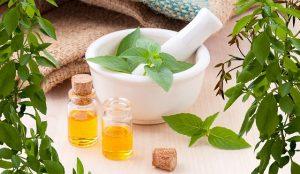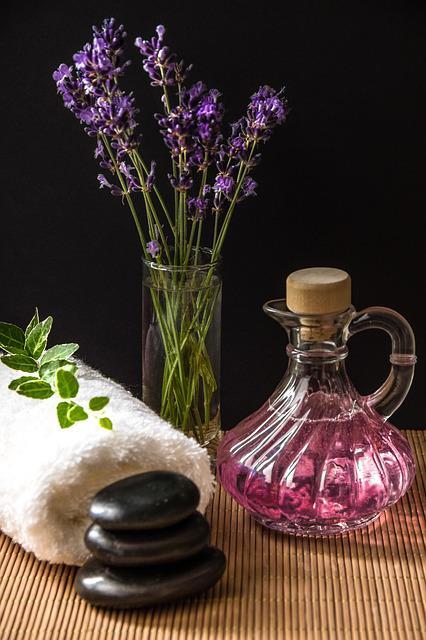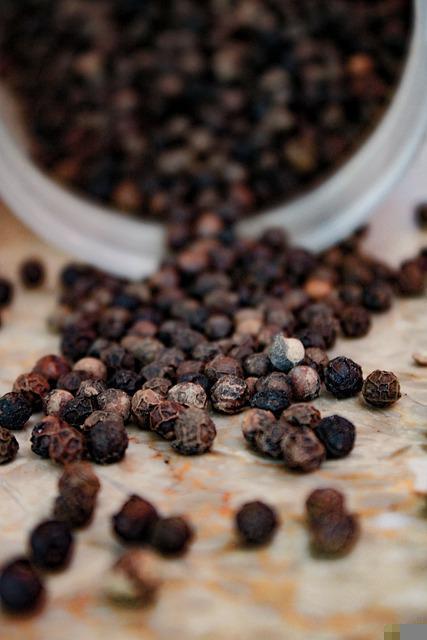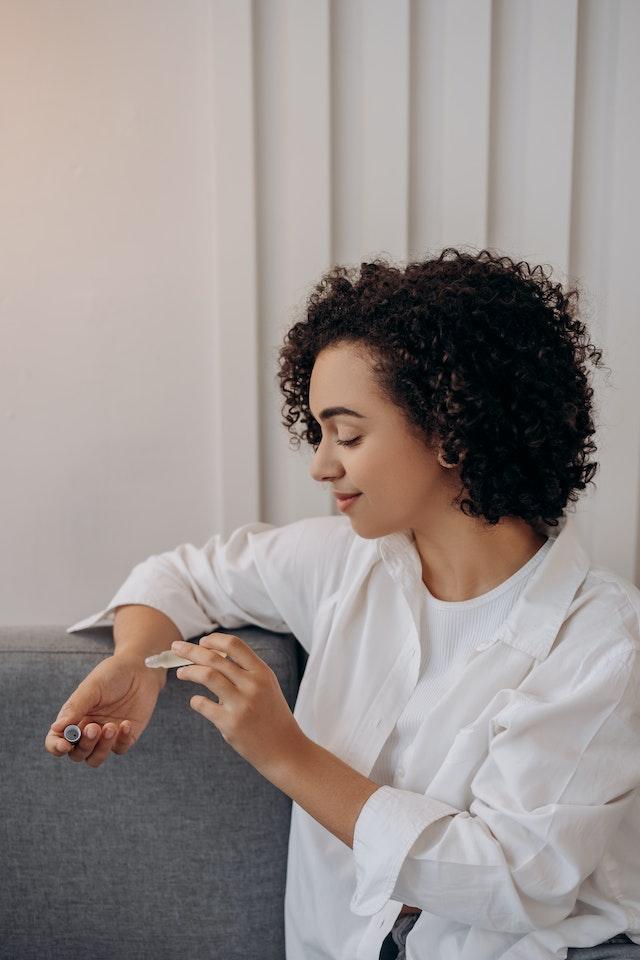
Essential Oils for Diabetes
Carious symptoms and complications can be brought by the way the body produces and uses insulin, which is affected by diabetes. Treatment with essential oils or aromatherapy may help as believed by some.
Essential Oils, Aromatherapy, and Diabetes
What are Essential Oils?
Concentrated compounds extracted from plants that contain oil are these oils. The scents, flavor, and other properties of the plant, which are the essence of a plant are captured. “Oil of whatever plant it is extracted from”, or ethereal oils is another name for essential oils. Oil of bergamot, oil of lavender, and many more are some examples.
It does not mean that our body cannot do without it despite the word “essential” attached to the oil. The plant essence i.e., flavor and scents are contained in the oil and that is the meaning of the ‘essence’ in the oil.
In historical times, essential oils have been used in the production of perfumes and as a common remedy to various ailments such as cold, infection, and many more hence they are not a new trend.
In the peel of citrus fruit, a person can easily find an essential oil. Essential oil spreads the scent of fresh oranges when an orange is peeled.
Wondering How Essential Oils Are Extracted?
Two major processes are involved in the extraction of essential oils from plants and they include: –
Distillation (by steam or water)
The process of heating the plants over water or passing steam through them is involved in this process to extract oil from plants.
Mechanical process (like cold pressing)
To bring out the oil, the plant is squeezed or pressed with a steel press.
Expression, solvent extraction, and many more are other processes.
Essential oils often smell, taste, etc. more powerful than the original plant they were extracted from because they contain concentrated compounds.
Essential Oils vs. Carrier Oils
Carrier oils are always confused with essential oils by people but they are actually. Generally speaking, vegetable oils that are extracted from the seeds, kernels, and nuts of fruits are known as carrier oils while essential oils are extracted from the aromatic leaves, barks, and roots of plants.
However, these definitions have exceptions. Essential oils when applied directly without dilution to the skin can irritate or burn it and therefore carrier oils are commonly used to dilute essential oils.
The effects of diabetes can be reduced using the following essential oils.
Coriander seed
All over the globe, coriander or cilantro seed grows. Digestive issues like indigestion, diarrhea, and flatulence can be solved using coriander seed as a remedy in many traditions.
Additionally, the fight against diabetes may also be aided using coriander seed essential oil. Blood sugar levels in rats with diabetes were reduced because of an extract from coriander seed as per the findings by scientists in a study from 2009.
After using coriander seed oil, the beta cells in the pancreas were more active as noted by researchers. Blood sugar may be reduced by this because of the aiding in increased insulin levels. For online purchases coriander oil is available.
Lemon Balm
According to a study published in 2015, people with high blood sugar levels may benefit from Lemon balm (Melissa officinalis) essential oil.
Consumption of glucose by cells was encouraged by the essential oils as per the findings from the researchers.
When a person uses it in a diffuser or applies it to the skin, it suggests that the oil may be beneficial for blood sugar levels however, humans were not used when the team carried out the test in a lab. Online purchase for lemon balm essential oil is available.
Clove bud
In preventing or managing type 2 diabetes, it was found that clove bud essential oil could play a role as per the findings by researchers in an animal-based study.
In a way that may combat diabetes, the oil reduced levels of enzymes in the pancreas as discovered by the team.
Additionally, features of diabetes that result from oxidative stress might be prevented or managed using the clove bud essential oil as they noted. To battle free radicals, which are unstable molecules that damage cells throughout the body, an antioxidant is needed and when this body does not produce enough antioxidants to battle it, this occurs.
Online purchase for clove bud essential oil is available.
Black Seed
Many conditions including diabetes have been treated using black seed, or Nigella sativa, in traditional medicine by people.
In 2014 findings by scientists tested the effects of Nigella sativa seed and its essential oil on diabetes in a rat model. Treatments for high blood sugar and the issues that come with it could be helped using both the seed and essential oil in their conclusion.
Further, the risk of diabetes complications that result from oxidative stress may be reduced using the antioxidants that Nigella sativa is rich in as per the findings by the researchers also. Your blood sugar may be reduced to safe levels after using black seed essential oil, alongside a varied and healthful diet. Online purchase for black seed oil is available.
Black Pepper
High blood pressure and circulatory problems are often associated with people with type 2 diabetes.
Managing or preventing type 2 diabetes and high blood pressure might be helped using essential oil from a common kitchen spice, black pepper according to findings from a 2013 study.
Certain enzymes that may contribute to diabetes and high blood pressure may be blocked using a lot of antioxidants contained in the oil as noted by the researchers.
Online purchase of black pepper essential oil is available.
Helichrysum and Grapefruit
Type 2 diabetes symptoms’ key control factor is weight management. Being overweight can increase the risk or make symptoms worse despite the fact that it does not cause every case of diabetes.
For many people with diabetes, the first-line treatment is losing weight. Despite the fact that essential oils may help, changes to diet and exercise are involved.
Compared to rats who did not consume any supplements, according to a study published in 2015, there was less weight gained, fewer signs of inflammation, and less excess insulin in rats with obesity who consumed extracts of either Helichrysum or grapefruit as supplements.
If they use these extracts properly in future research, the idea that people may lose weight with the help of both Helichrysum and grapefruit may be shown. Relaxation and weight loss may be aided by massaging with a base oil that contains Helichrysum or grapefruit essential oils after a workout for example.
Online availability of both Helichrysum and grapefruit is there.
Cinnamon
A renowned spice in desserts and other dishes with an aroma is cinnamon. Without adding more sugar, its flavor seems to boost sweetness.
Additionally, people with diabetes may be helped by this popular spice. Body weight, blood pressure, inflammation, sugar and fat levels, and insulin sensitivity may benefit from cinnamon as per the determination by scientists before publishing their findings in 2010.
Controlling certain features of diabetes in some people may be helped by consuming cinnamon and using the essential oil regularly.
Online purchase for cinnamon essential oil is available.
Lavender
Apart from helping to relieve diabetes symptoms according to research published in 2013, in traditional and western medicine, the lavender essential oil has numerous uses.
Protection against oxidative stress, which causes complications in people with diabetes, and balancing of high blood sugar levels may be aided by the use of lavender essential oil as found by researchers in animal experiments.
Online purchase of lavender oil is available.
How To Use Essential Oils for Diabetes?
How Essential Oils Would Interact with Your Medicine for Diabetes
Apart from inhaling through the nose or applying or massaging through the skin, essential oils can be used by diluting it with carrier oils such as coconut oil.
At least without the proper guidance of a qualified doctor, you should never ingest essential oil
So, do essential oils interact with your medication? It is true that the drugs we take sometimes interact with some essential oils.
There are two ways that essential oil enters your body before we see how they interact. These ways include:
• Through skin
Essential oil is absorbed via the body’s fluid after entering through the skin follicle, and sweat glands when applied it is mixed with a carrier oil on your skin.
• Through inhalation
Essential oil is absorbed into the bloodstream after you either breathe it when it is diffused in the air or when you inhale it directly through your nostrils.
These essential oils interact with medication after being absorbed into your bloodstream and entering your body by either:
Binding to plasma proteins and tissues where these drugs normally bind or stick to after competing with the diabetic drugs you are taking. CYP enzyme activities responsible for drug metabolism are then either increased (induced) or stopped (inhabited). The enzyme CYP2B6 metabolizes the lemon tea tree and Litsea inhibits drugs for example. Thereby inhibiting the efficacy of medications, your digestive system flora and motility could be changed by them.
Moreover, this active compound ‘furanocoumarin’ is contained in the citrus family where some essential oils such as lemon oil, orange oil, and other oils are derived. Intestinal P-glycoprotein, which can raise your medication or drug level above normal has been found to be inhibited by this compound.
It is advisable and crucial to meet your doctor if have essential oils that have the potential to interact with medications. To use the essential oil without interfering with your drugs, you may be told to work out a way to muse it or stop using the essential oil, or medication first by the doctor after assessing the risk.
Diluted on the skin or in a massage: some particles may enter the bloodstream or provide localized treatment since they are small enough to pass through the skin. Using a carrier oil such as sweet almond oil to dilute an essential oil should be always done.
Relaxing and reducing the stress level in a person can be aided by oils as part of the massage.
Wound dressings, lotions, or bath salts can be applied with diluted essential oils by people.
Cautions
Whether in a diffuser or on the skin, for everyone, not all oils are healthful. For people with breathing problems such as asthma, some oils can irritate their lungs and be dangerous, for example.
Allergies
To check for allergies try applying a dime-sized amount to the forearm, before using a diluted essential oil mixture. It should be safe to use the diluted oil if after 24-48 hours no indications of allergies appear.
Hormonal Impact
When people apply them to the skin, some essential oils, including lavender, contain substances that may disrupt hormonal activity as noted by the National Institute of Environmental Health Sciences in 2018. In prepubescent males, this may lead to the unwanted growth of breast tissue. Many essential oils are toxic, never swallow any.
When Should You Not Use Essential Oil with Diabetes?
• If you notice a spike in the symptoms of your disease or any new complications or issues, you should not use an essential oil
• Since some essential oils, can interfere with your medications, or unless directed by a qualified doctor, you should not use an essential oil together with your drugs at the same time.
• It might irritate and many more, therefore before application on your skin always mix the oil with a carrier oil such as almond oil, olive oil, etc. hence you should not use essential oil directly on your skin.
Essential Oils You Should Avoid If You Are Diabetic
It does not mean something is safe if it is natural as we have established and essential oils are among them.
Mild to serious complications and possibly even death can be caused by some oils that are dangerous to diabetics. Apart from some oils interfering with or exacerbating your already weakened immune system, they can also interact with the diabetic drugs you are taking.
As a diabetic, here are some of the essential oils you should avoid:
• Angelica
• Rosemary
• Sage
• Hyssop
• Bitter almond
• Red thyme
• Tansy
• Wormwood
Conclusion
Bioactive compounds extracted from plants are contained in essential oils, in summary. Apart from managing diabetes, relieving stress, being a natural pesticide, and treating infection, essential oils have a wide range of uses.
Some oils may not be safe and can worsen your condition if you are diabetic hence making them dangerous to you and therefore should be taken by you.
The dangers of some essential oils to a diabetic person include causing the development of new complications and symptoms, raising your blood pressure, interfering with your medication, and the worst, a possible death.
Seeking the advice of a qualified medical doctor is key if you want to use essential oil either as a way to freshen your home or manage your condition as a diabetic.
FAQs
Can diabetics use essential oils?
The use of essential oils such as dill, cinnamon, coriander, or ylang-ylang can tamper with diabetes as discovered recently. Essential oils can help reduce some aggravation of the condition despite the that they can never completely cure diabetes.
Which oil reduces blood sugar?
According to new research, compared to other kinds of fats, cholesterol and blood sugar are reduced more by extra virgin olive oil.
How long does it take cinnamon to lower blood sugar?
After 40 days a significant decrease in serum glucose levels was seen after the addition of 1, 3, or 6g of cinnamon to the diet. Only in the group receiving 6g of cinnamon were the values significantly lower after 20 days.
Is peppermint good for diabetics?
The good news for your A1C is that you may feel calmer after adding peppermint tea to your drink rotation. Since improved blood glucose levels can be due to reduced stress, the calming effects of peppermint tea may be beneficial to individuals with type 2 diabetes.
Lowering Blood Sugar is a participant in the Amazon Services LLC Associates Program, an affiliate advertising program designed to provide a means for sites to earn advertising fees by advertising and linking to Amazon.com.




